“Because of My Transgression My Eyes Are Opened”
Moses 4; 5:1–15; 6:48–62
Links to the reading in the SAB: Genesis 1, Genesis 2
LDS manual: here
Background
This lesson’s about Adam and Eve, a talking snake, and the Fall.
Suggestion from the real manual:
You may want to ask a class member to prepare to summarize the account of the Fall of Adam and Eve.
Okay, I’ll have a go.
- Adam and Eve had no knowledge of good and evil.
- God allowed them to choose anyway.
- With no knowledge of good and evil, they chose the wrong thing.
- God then punished them for it.
- This punishment extended to everyone who will ever live.
Sounds fair.
I like to examine religious tenets by what function they bring to the religion. Think of it: every religion that exists today has made the right moves — done enough to keep enough people believing so far. And just as an individual perpetuates itself through its genes, a belief system perpetuates itself through its memes — the individual beliefs that make it believable. So let’s look at what the Fall meme brings to the religion.
1. It accounts for evil.
For polytheists, the existence of evil (for want of a better term) is easy to explain: There are competing, capricious, or downright evil gods. But for monotheists who believe in a good god, it’s a tough problem. Does your god create and/or allow the evil? Then he’s not good. How does Mormonism (and Christianity) explain this? There are three solutions, and they’re all right here in the garden.
1a. Blame humans.
The doctrine of the Fall takes the blame off of God — he introduced humans into a perfect world, which they then screwed up. So, as always, it’s the humans’ fault.
1b. Blame the serpent.
The serpent, for his part, would eventually find himself retooled as Satan, the adversary. Early Judaism didn’t have a Satan, at least not as we know him today. A satan was an opposer or an accuser — not even a specific person. Satan himself wouldn’t show up until after the Hebrews had run into the Zoroastrians, with their Manichean belief of good gods and bad gods. Even then, Satan was pretty chummy with God, dropping in whenever he felt like it, and making bets (see Job).
Only in the New Testament would the Devil find his fullest expression, infesting herds of swine, tormenting demoniacs, and so on. The more people looked for a devil, the more they found. Let’s just say he grew into his role.
But there’s a third party who’d be copping some blame…
1c. Blame Eve.
The Fall legend has Eve taking the forbidden fruit first, so she (and her daughters) would be getting a larger share of the punishment. Everything’s been put on Eve, from childbirth to lack of priesthood. This doctrine justifies the misogyny that Mormonism (and just about every other religion) has in spades.
2. It creates the idea of sin
Before you can sell the cure, you have to sell the disease. The disease Christianity wants to sell you is sin — or rather, the idea that you’ve already sinned. This induces a sense of obligation. The best part: you can’t opt out — Adam’s fall means you’re born into original sin. Soften that up however you like: a condition of sinfulness, a tendency for sin; it’s all the same thing. You’re on the back foot now, and you’ve only just been born. Poor kid.
3. It creates the need for a saviour
Gavin de Becker in his book The Gift of Fear has some warning signs to help recognise dangerous or abusive people. One of them is loan sharking. A loan shark exploits his victim’s sense of fairness by giving some unwanted and unasked-for assistance — and then expecting to be paid back.
Loan sharking operates in Christianity by
– telling you you’ve sinned and making you feel guilty, and what’s more,
– telling you that a perfect person suffered and died for your sins. You’re not going to throw that wonderful gift away, are you? Only a terrible person would do that.
This is loan sharking. It’s designed to get you in line. Your sense of obligation keeps you there. The way to respond to a loan shark is to say, “I didn’t ask for your help. I don’t want it. Go away.”
Mormons are intended to take the story of Adam and Eve and the Fall literally.
There’s a great range of belief among Latter-day Saints on the reality of the Fall of Adam. Some Mormons are theistic evolutionists — they think evolution’s true, but that Godiddit — and some argue that Adam and Eve weren’t real people, but just types. I’ve heard it claimed that humans evolved, but then Adam was just the one that God decided to talk to. In short, there’s a range of belief among Mormons.
What a surprise, then, to do the research for this lesson and find that this range doesn’t exist in approved Church materials. According to the Church, the whole thing is as unambiguously literal as can be.
The late President Paternoster (how I miss him) pointed out that according to LDS-approved materials,
Adam and Eve are literal people
Joseph Smith claimed to see Adam in Doctrine and Covenants 137:5
The Apostle Paul certainly thought Adam was a real person.
Adam and Eve are the ancestors of all humans
They lived 6,000 years ago
Hey, anyone remember this bookmark from Seminary? Click for a big PDF version, straight from the Church’s website.
Here’s another version that ran in the Ensign.
It’s well-organised, and very chronologically specific, wouldn’t you say? There’s Adam, starting off right around 4,000 BCE.
And in fact, D&C Section 77 says that the Earth’s temporal existence has a 7,000 year run.
6 Q. What are we to understand by the book which John saw, which was sealed on the back with seven seals?
A. We are to understand that it contains the revealed will, mysteries, and the works of God; the hidden things of his economy concerning this earth during the seven thousand years of its continuance, or its temporal existence.
There was no death before the Fall
Book of Mormon, 2 Nephi 2: 22–23:
2:22 And now, behold, if Adam had not transgressed he would not have fallen, but he would have remained in the garden of Eden. And all things which were created must have remained in the same state in which they were after they were created; and they must have remained forever, and had no end.
2:23 And they would have had no children; wherefore they would have remained in a state of innocence, having no joy, for they knew no misery; doing no good, for they knew no sin.
And most surprising of all, the LDS website entry on Death
Latter-day revelation teaches that there was no death on this earth before the Fall of Adam. Indeed, death entered the world as a direct result of the Fall.
Assignment for those trapped in a real Gospel Doctrine class: Read the statement from the Church website, claiming that nothing died before about 6,000 years ago.
Latter-day Saints who accept evolution (and there are many) would be surprised to find that a major mechanism for evolution — population pressure — did not exist for millions of years before Adam and Eve did their thing. Evolution just would not work if Church teachings are true. The two are simply incompatible.
No doubt there are a lot of Latter-day Saints who understand that all of the above cannot possibly be true. It’s very strange, then, to browse the lesson manual and all the available Church materials and find that they take the story completely at face value. No mention of the possibly metaphorical nature of the story is ever touched on. I’ve never seen anything semi-official from the Church that takes the non-literal view of Adam and Eve.
And there’s a very good reason for this: If the Adam and Eve isn’t literally true, the gospel story falls apart. If Adam and Eve didn’t fall, then no one brought sin and death into the world. No sin and no death means no need for Jesus to bring about forgiveness and the Resurrection. Simple as that. So the doctrine of the Fall puts Mormon doctrine in kind of a weird bind: the gospel only works if the story is literally true, but the story cannot possibly be literally true. One could relax the literalism and go metaphorical, but what happens then? Would you accept metaphorical forgiveness? How does metaphorical resurrection sound? Mormons who take the metaphorical view are ignoring vast amounts of their own scripture.
The Church doesn’t sell any of this as a metaphor; it’s intended to be straight-down-the-line literal. LDS missionaries do not say “We have a great metaphor that we’d like to share with you today!”
No thinking person should believe this.
The Atonement is a weird idea.
God could have forgiven everyone — because he can do anything. Instead he chose to kill his son, so that he could stand to have a relationship with us again. Isn’t that kind of weird?
Video: Dan Barker of the Freedom from Religion Foundation, and a former preacher, explains the atonement:
The Garden of Eden has a positive message
Let’s end with something positive.
The metaphor of leaving the Garden of Eden is a great one. We grow up in a state of innocence — well, some of us do, if we’re lucky. I had very loving and very sheltering parents. But at some point, we have to make a decision to step out and gain knowledge. Once you do, you can never go back. That’s how some of our life’s choices are. Going to uni or getting a job, getting married, deconverting from your religion of origin — all of life’s major crossroads entail a choice: are you going to partake and have your eyes opened? Or will you continue as you are? Leaving the Garden and entering the lone and dreary world is difficult; you get knocked around. Stuff happens out there.
But one thing I do value from my Mormon background is the idea that leaving the Garden — like taking the red pill in The Matrix — is a positive step. Leaving the religion of my youth was the most difficult and disruptive thing I’ve ever done, and by far the most worthwhile.
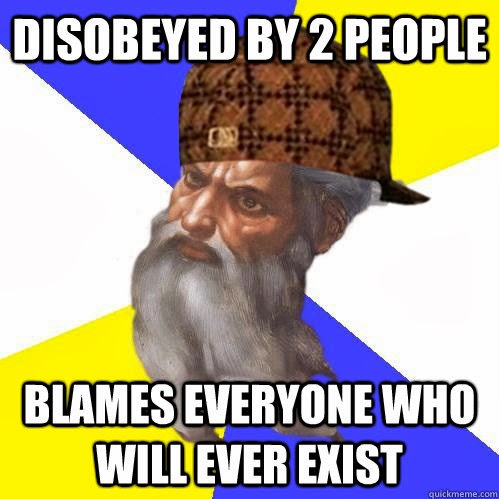

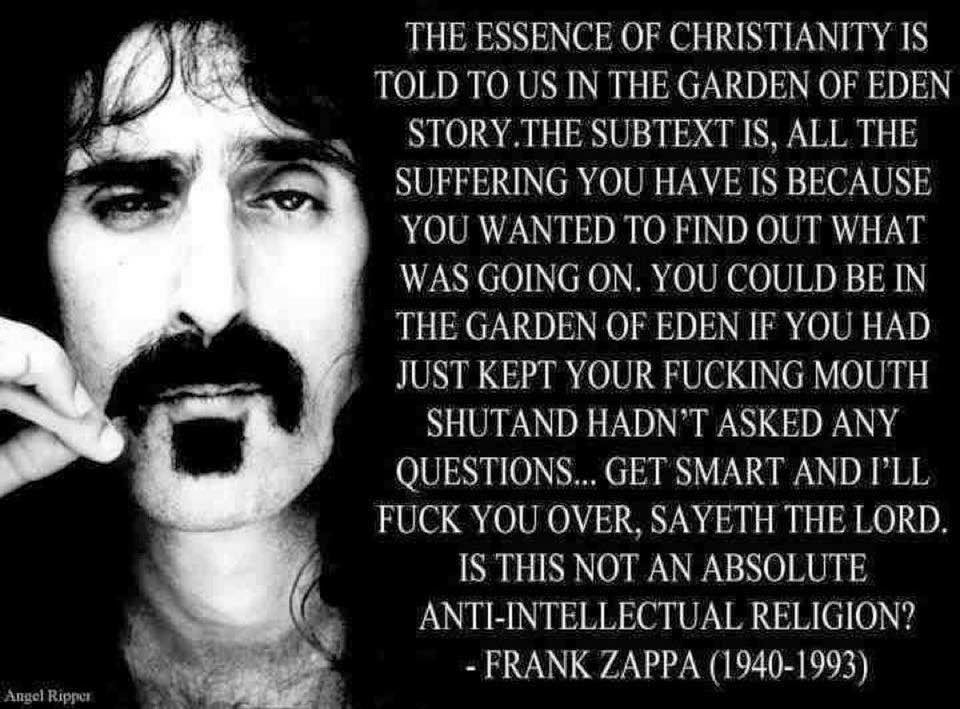

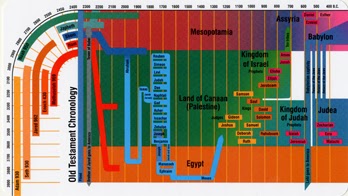
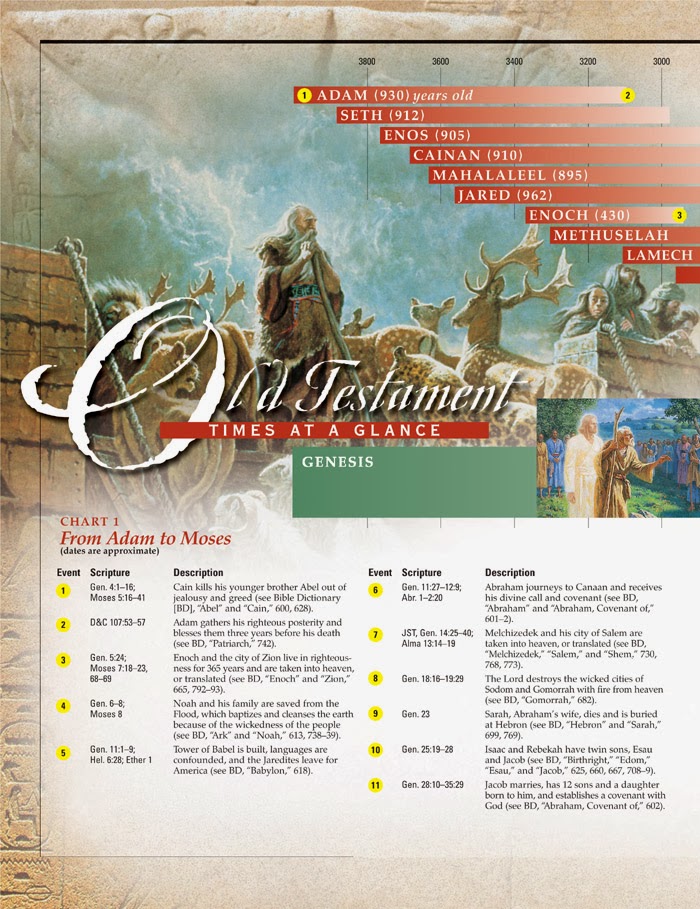
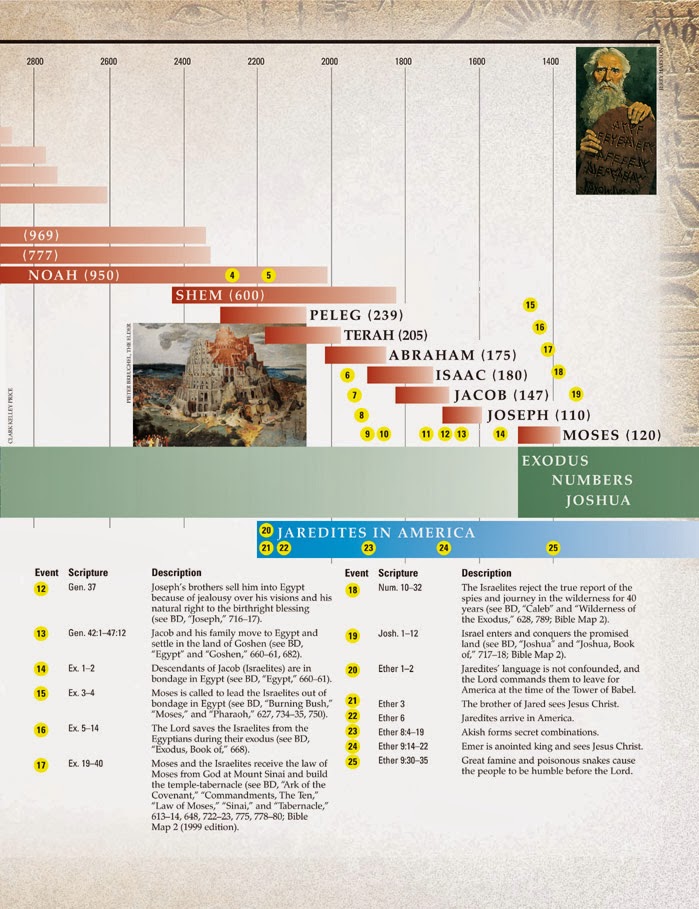
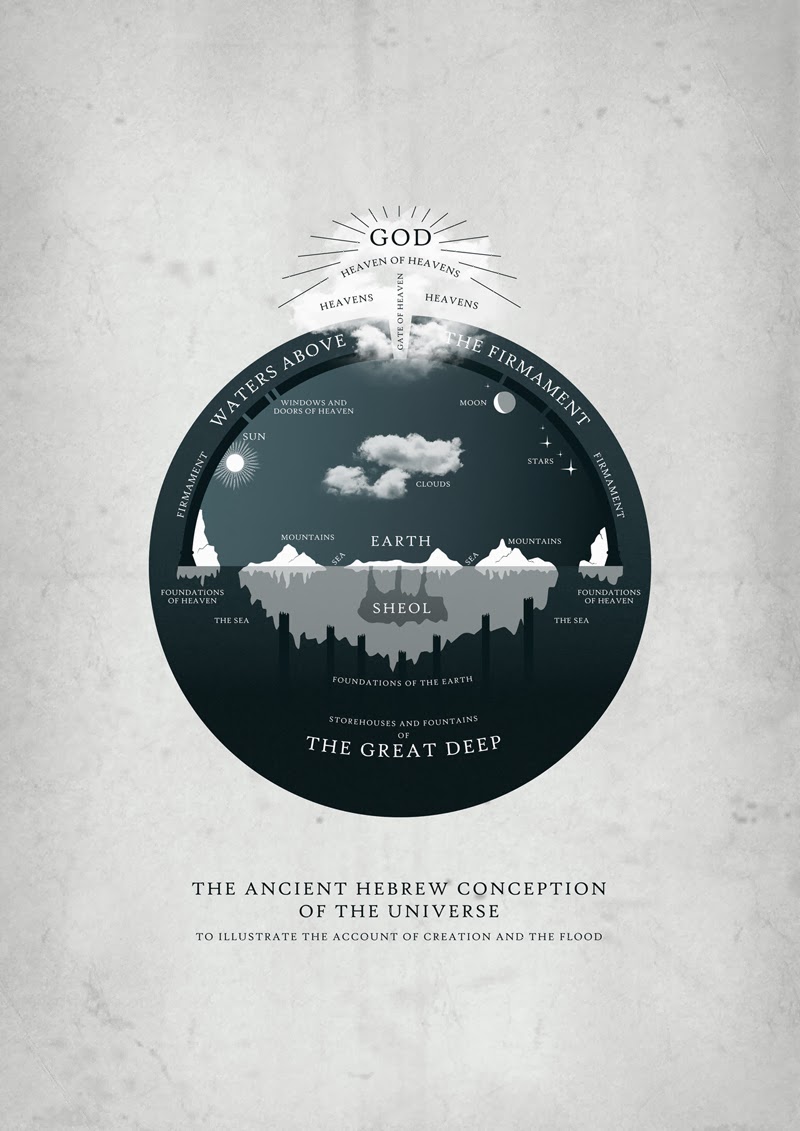
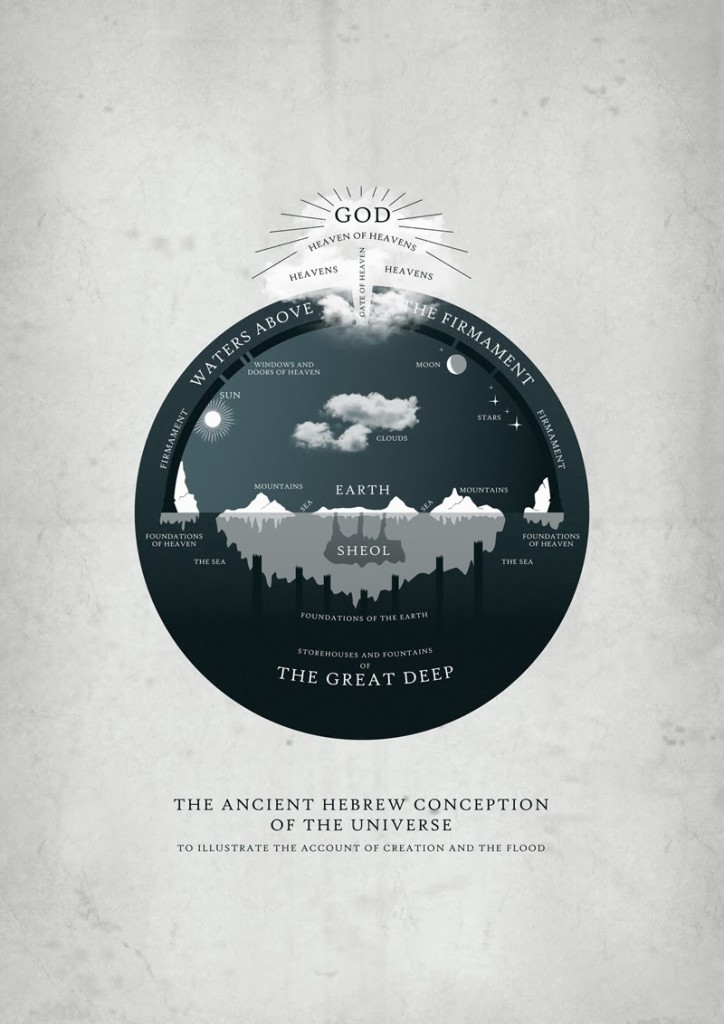

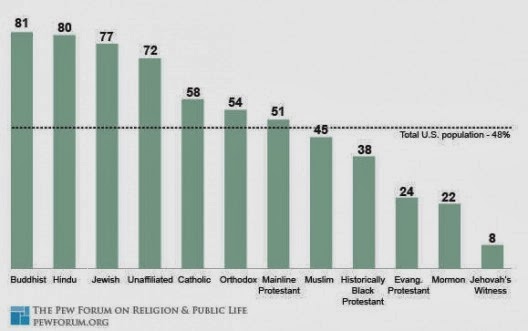

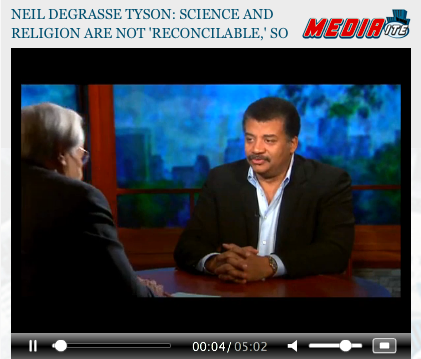
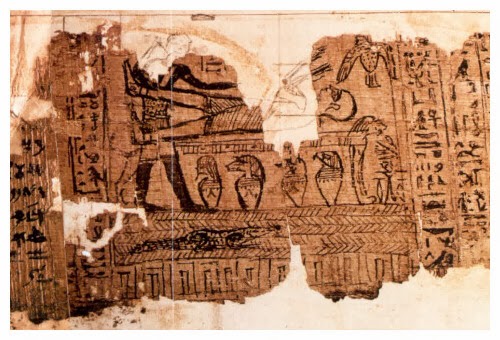

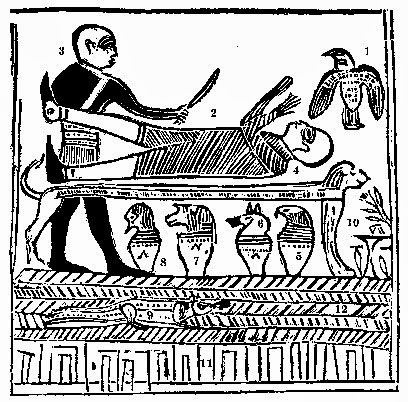
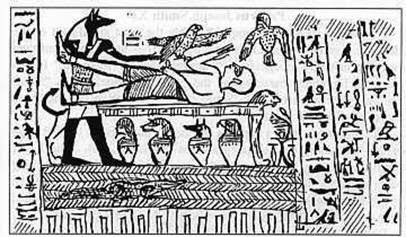
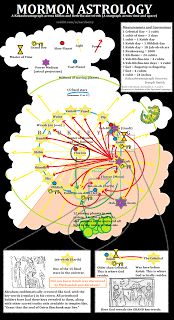
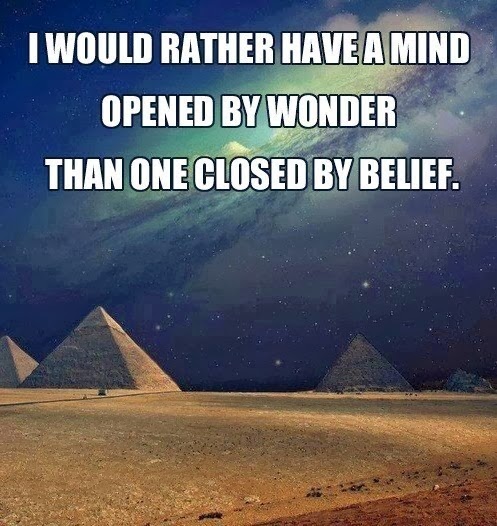



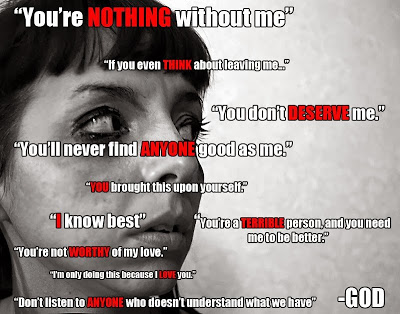
Recent Comments